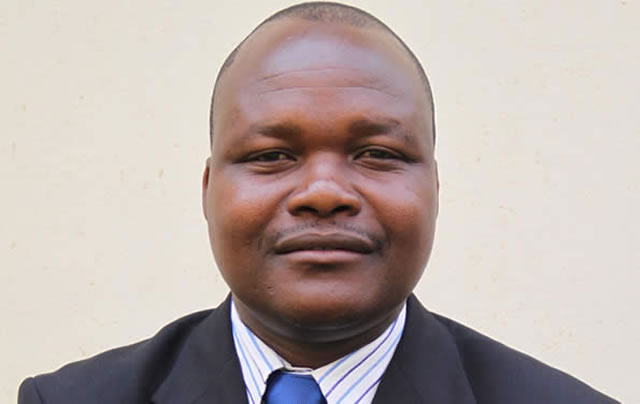Private sector urged to fund research


Higher and Tertiary Education, Science and Technology Development deputy Minister Dr Godfrey Gandawa
Leonard Ncube, Victoria Falls Reporter
THE private sector has been challenged to fund research at institutions of higher learning to complement government efforts to transform the economy through science and technology.
The call was made at a Science, Technology, Engineering and Mathematics (STEM) luncheon held in Victoria Falls on Wednesday.
Higher and Tertiary Education, Science and Technology Development deputy Minister Dr Godfrey Gandawa reiterated calls for tertiary institutions to transform themselves from basic education centres to produce problem solving researchers with patents.
A patent is a legal title granting a researcher the right to exclude others from making, using or selling the claimed invention.
“Industry needs to come in and fund research. It’s myopic to think government alone can fund research hence the private sector must fund universities so they are able to research and patent their work. If we don’t produce patents, we will continue talking without anything happening and if we want to industrialise in 15 years, then we must start now and STEM should be our driver for industrial revolution which is about automation,” said Dr Gandawa.
He said the current curriculum where institutions concentrate on standard tests was archaic and retrogressive.
“Institutions should desist from concentrating on grades and focus on the product of a graduate. Distinctions amount to nothing if the graduate does not contribute to development. Technology is the human world hence you should focus on research, design and development to lead to the creation of a physical product.
“Our graduates are not trained to solve problems hence we need research that identifies problems such as water challenges, potholes or industry closure.
You have Nust allowing a student to do a research about Mutoko, that’s irrelevant. You should look at problems affecting Bulawayo and have research inclined to solving such problems. If a student proposes a research that doesn’t solve local problems, throw it away,” said Dr Gandawa.
He said universities should “move away from this toxic culture of education driven by an archaic curriculum and train graduates for future jobs.”
Speaking at the same occasion, Zimdef chief executive officer Mr Fredrick Mandizvidza called for collaborative efforts to come up with a STEM agenda.
“We have embarked on a path that is exciting and will lead us to the 4th revolution through creating jobs for the future. There is a need for concerted funding, government has done its part and industry must come in with its share. While industry transforms to a technology driven approach, industry should respond to the internet of things,” he said.
Lupane State University Vice Chancellor, Professor Pardon Kuipa and Engineer William Goriwondo, a lecturer at Nust said both institutions have embraced new trends in line with technological demands.
“As universities we have resolved to shift from basic to applied research because ZimAsset requires institutions of higher learning to produce experts,” said Prof Kuipa. — @ncubeleon











Comments